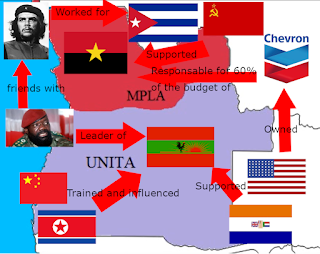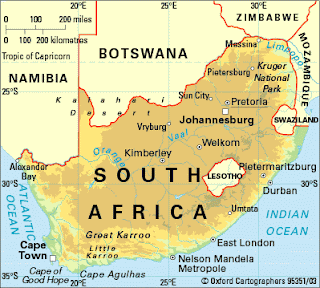Angola- state situated in Southern Africa, with a wide coastline. To its north, it has a border with the Democratic Republic of Congo, to its east with Zambia and to its south with Namibia.
The Angolan state was the
scene of a civil war in 1975 when it proclaimed itself the People’s Republic of
Angola. The People's Movement for the Liberation of Angola (MPLA), which had
won the war, put Angola on its way to becoming a communist society, being
supported by the ‘peacekeeping troops’ sent by Cuba and the USSR.
At the same time, another
armed group that had a political party, the National Union for the Total
Independence of Angola (UNITA), was backed by the regime ruling South Africa
and the international community.
A third faction going by
the name of the National Front for the Liberation of Angola (NFLA), which was
actually financed by the dictator Salazar’s Portugal, beneficiated from the
help of communist Romania and other ‘friendly’ countries, with them receiving
ammunition and weapons.
After a peace agreement between the bigger parties, NFLA and UNITA, mediated by Portugal and the UN in 1991, free elections are organized under international surveillance. This conflict in fact pitted against each other the two doctrines of the modern world, communism and capitalism, left behind 500 000 deaths and caused major damage to the Angolan economy.
Angola has a border
dispute with the People’s Republic of Congo regarding the region of Cabinda.
This is a territory located near where the Congo River flows into the Atlantic
Ocean and they fight for control over it because both countries want the commercial
and strategical advantages its position offers.
Cabinda is the exact
definition of an exclave, being a country’s territory that is situated in
another country or between two countries. Cabinda was named for a while
Portuguese Congo and is a prosper region with a lot of petrol where rebel
groups that wanted their independence from Angola activate. Even when it was
destabilized by the civil war in 1975, Angola did not allow the factions from
Cabinda to separate from it.

.jpg)














